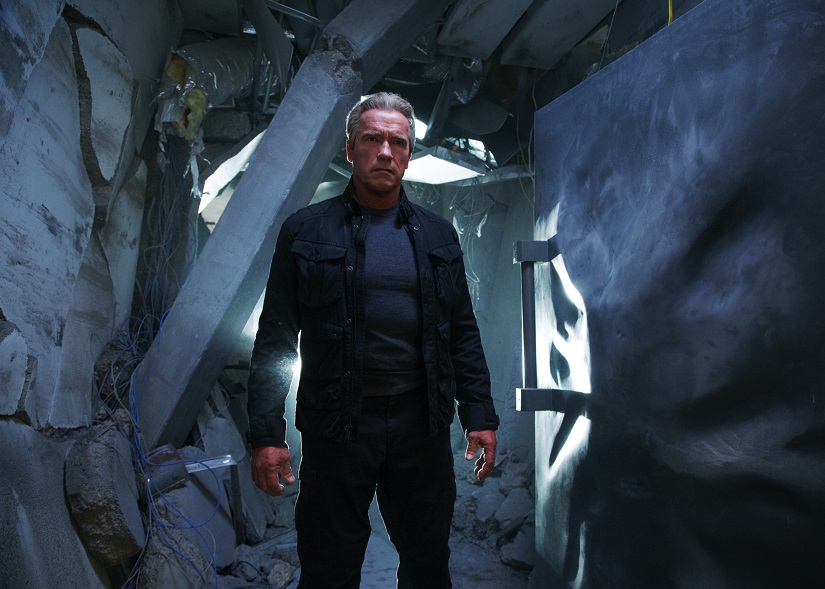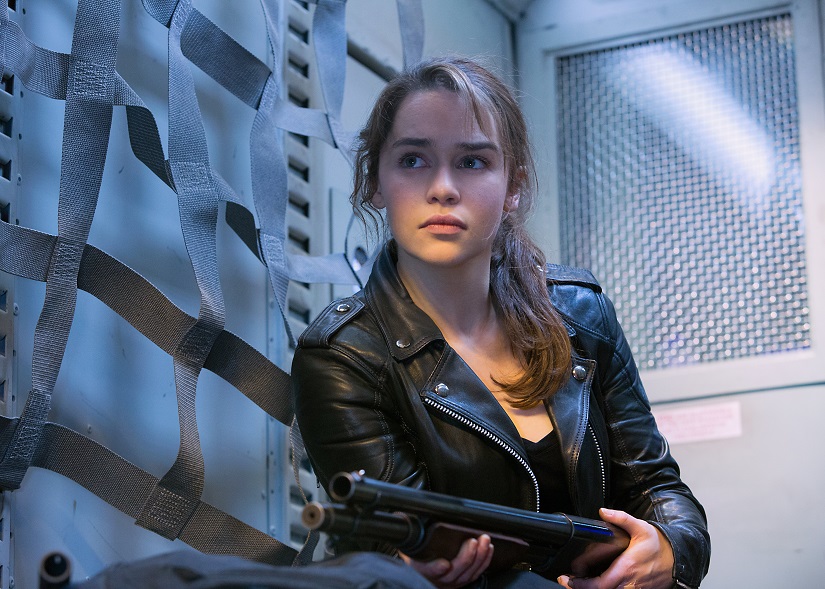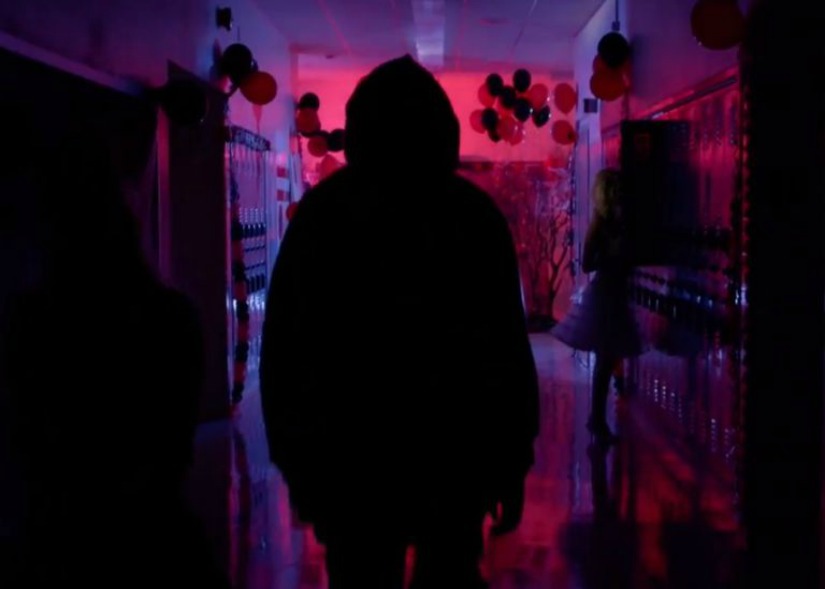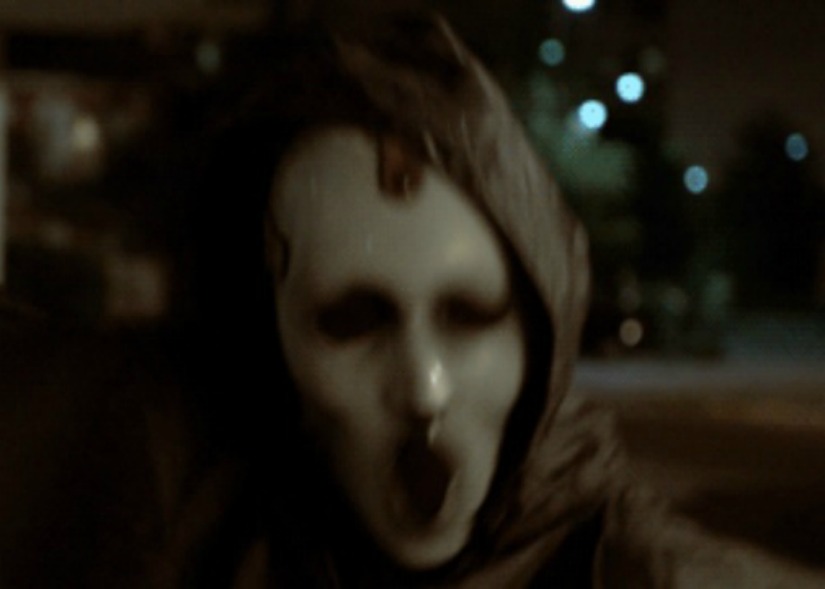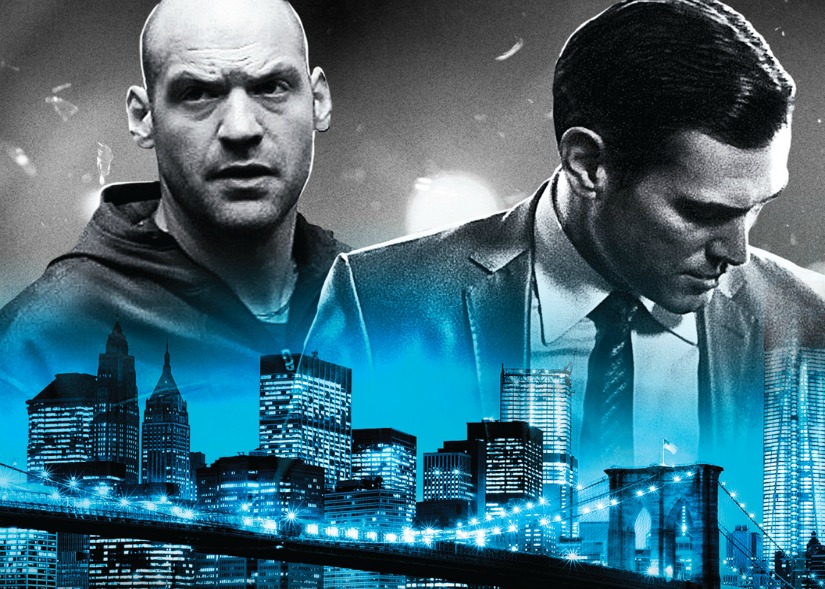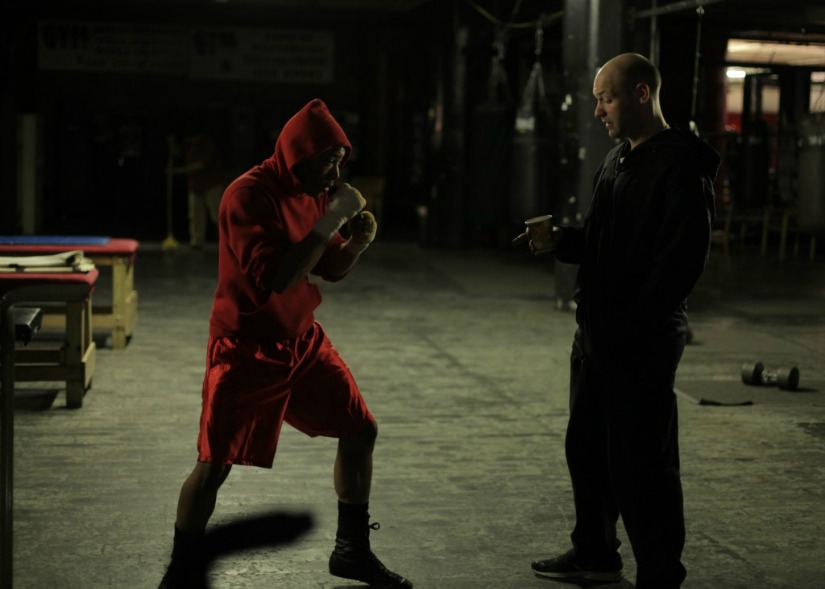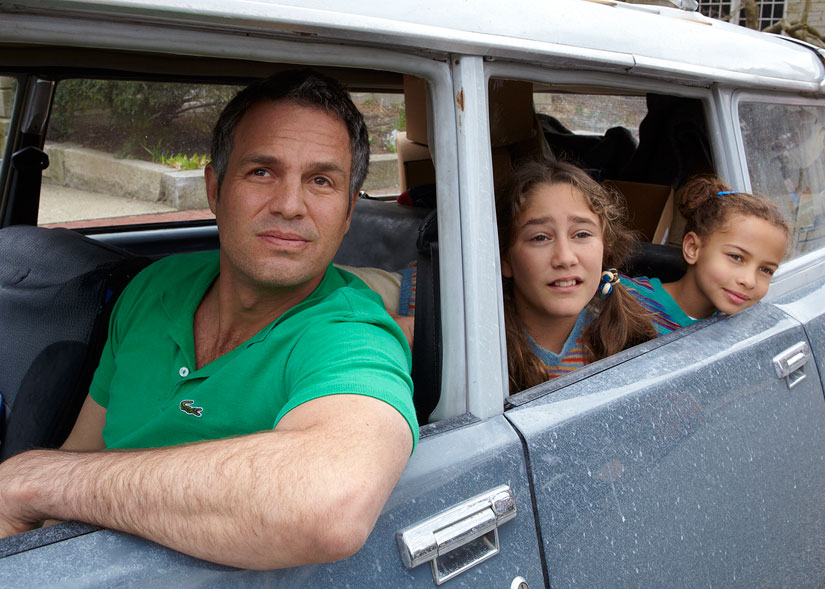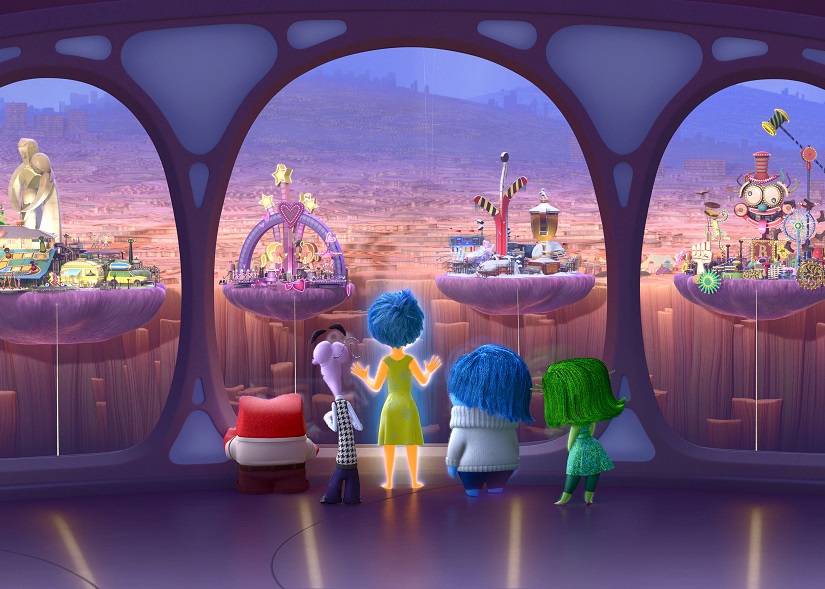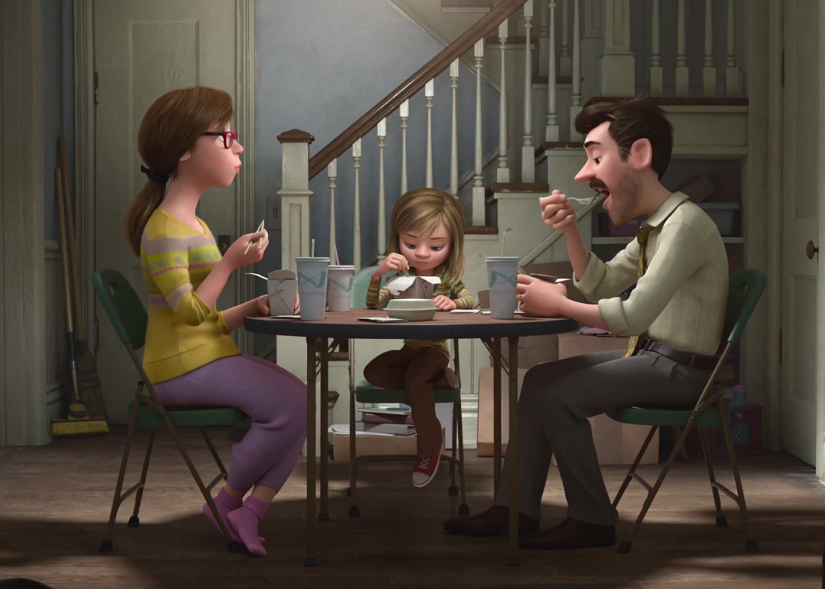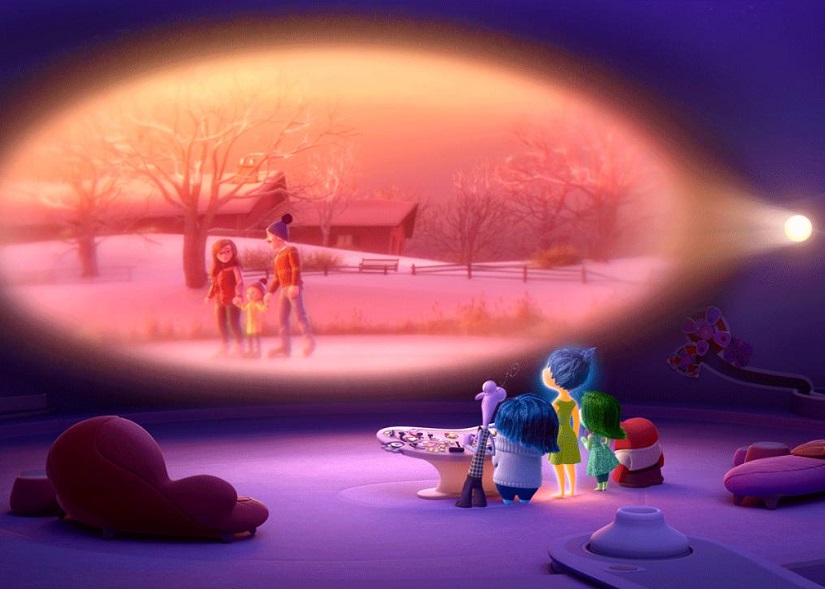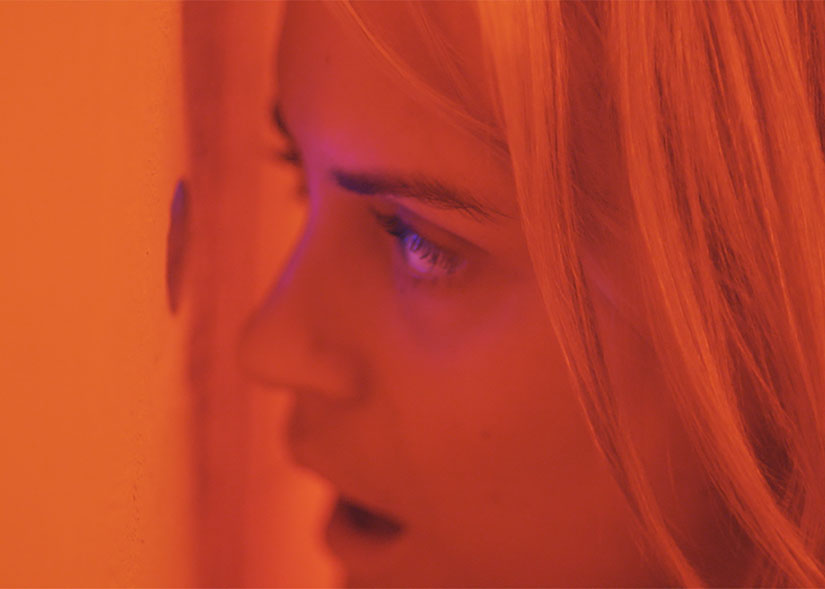[Review] Terminator: Genisys
Terminator: Genisys didn't have the easiest start in life, having been revealed in a series of cast photos for Entertainment Now so ridiculously posed and doctored that they looked more like a deliberate parody of overwrought movie marketing than serious promotional material. The first trailer, seen below, didn't inspire much greater enthusiasm, relying heavily on callbacks to James Cameron's original movie and trying to sell a decidely girlish-looking Emilia Clarke as the hard-ass Sarah Connor. That's without even mentioning the name, its spelling as ridiculous and '90s inane now as it was when first revealed.
Everything leading up to the movie seemed to hint at a storm brewing on the horizon, a disaster lingering in the near future whose inevitability grew ever more unstoppable as the time drew nearer. I don't know whether it's therefore a relief to report that Genisys appears to have changed its fate for the better when all it means is, much like the Sisyphean battles Sarah Connor seems unable to extricate herself from fighting, the apocalypse may have been averted, but that doesn't mean what's left in its place is an especially good time.
[youtube id="62E4FJTwSuc"]
Terminator: Genisys
Director: Alan Taylor
Rating: PG-13
Release Date: July 1st, 2015
James Cameron's name has been plastered all over the movie's recent advertising and one can only assume he looked at two possible futures - one where Genisys is a success and he presumably gets to wallow in an avalanche of royalties, and another where Genisys is the box-office bomb it's looking to be and suddenly he's got to put on hold that order for another deep sea submersible - and decided he liked the first one just a little more. Why else he would willingly attach his name, even peripherally, to a movie so profoundly mediocre rather defies comprehension - although let's not forget that he also spoke favourably of Terminator 3: Rise Of The Machines around the time of its release as well.
Genisys, on balance, is better than the third and fourth movie in this series increasingly desperate for any sense of creative direction, though that's not saying much. Rise Of The Machines was a tamer, lamer rehash of T2 with a surfeit of insufferably camp humour, while the most memorable thing about McG's Terminator Salvation was Christian Bale's on-set meltdown at the lighting crew. To its credit, Genisys tries something new, messing with the series chronology to perform a semi-reboot in the style of J.J. Abrams' 2009 Star Trek. Sarah Connor has now been raised since childhood by Schwarzenegger's T-800, Judgment Day has been pushed back to coincide with the release of a global operating system called (you guessed it) Genisys, and someone or something seems to be producing surgery on the timelines they are hopping between.
The novelty value of the movie screwing with its own history keeps it afloat for longer than it deserves. While the plot, again, amounts to nothing more than Sarah and her cohorts having to stop Skynet before a literal countdown reaches zero, there are some interesting if largely unexplored ideas introduced as a result of all the temporal upheaval, with a couple of the character relationships sent in potentially interesting new directions. One of the movie's major twists was revealed in the second trailer and is at the epicentre for much of this, but in the off-chance you haven't been spoilt already, I won't do so here. Though these elements don't add a great deal to Genisys itself, but at least lay the groundwork for better movies in the future. That's hardly a great magnitude of praise, especially with Marvel having long since worn out the welcome of movies-which-are-actually-adverts-for-later-movies, but is perhaps the most interesting thing about an action blockbuster which otherwise seems content to plod through the formulaic motions.
Though hardly the disaster many would understandably have been expecting, Genisys makes a series of lousy choices which holds it back from leaving any sort of positive impression. Most damagingly, both Emilia Clarke and Jai Courtney are severely miscast. While Clarke simply cannot pull off the warrior woman act convincingly despite her best efforts - the recoil of the Desert Eagle she fires in her big introduction would realistically tear her hand off at the dainty wrist - Courtney gives a non-performance as Kyle Reese that is among the flattest I can ever recall seeing. Reese is a man who has lived his entire life being hunted in an apocalyptic wasteland before time travelling back to the past and discovering history is changing around him, yet the only emotion he even comes close to expressing is mild disinterest. Yes, the script is weak, but the character has enough context and precedence that even a mediocre actor could dig up a slither of the pain and sadness and fear that Michael Biehn originated in the role. Courtney is a black hole at the movie's heart, leeching away interest with every second of his extensive screentime. At least Sam Worthington and the Hemsworths, his predecessors as pre-fab Australian hunks, had the self-respect to stick with inert blandness.
On the plus side, Schwarzenegger seems to have rediscovered the fun in his signature role, despite being lumbered once again with a tedious line in character-breaking campy humour. The difference between his performance in Genisys, when even his deliberately mechanical line recitals have some gusto behind them, and his bored meandering through Rise Of The Machines could not be more apparent, even if it ultimately amounts to little more than small inflections and gestures. An engaged Arnie is a fun Arnie and while he can't fully compensate for Courtney's dead-eyed charisma vampiricism, he at least provides some successfully nostalgic pleasures amid the otherwise mixed bag of series callbacks. Among these, the weightless CGI sinks any pleasure that might have been had from the appearance of a 'young' T-800 Arnie (itself a repeat of a trick pulled in Salvation) and generally undermines the major action scenes with a visibly jarring disregard for even the most basic laws of physical motion and mass.
Considering the value that the Terminator series places on the importance of humanity's survival in face of mechanised extinction, most of the present day world in which Genisys takes place seems to have been rendered by computer. Cameron's movies were rough, dirty epics that were as scary as they were cool and as brashly emotional as they were exciting. Genisys hints at interesting plot convolutions but doesn't get around to showing them, while its inert casting kills any humanity in the central relationship and hollow CGI creates action sequences that are easy to sit through but impossible to engage with. There's some pleasure to be had in a Schwarzenegger back on form, the refrains of that iconic theme, or JK Simmons almost making a character out of a cardboard cut-out, even if he really should have been playing Dr. Silberman, if only to keep series tradition alive. Every ambition the movie has was already achieved to greater effect in the underrated TV series, The Sarah Connor Chronicles, while the rest seems trapped between rehashing the pleasures of the past and promising better things in the future, all while delivering little in the here and now.
[Review] MTV's Scream: Pilot
I've been very interested in MTV's TV adaptation of the Scream films since it was announced. I was mainly concerned about how any of it would work. Taking the core essentials of the horror genre like tension, gore, and very little characterization and stretching it out over an entire season is a big task. After seeing the first eight minutes of the premiere the other day, I just had to see the rest of the episode. But how does it hold up? Does the TV series hold any of the charm of the original films, or is it just so different that it's good in its own right?
Well a little of column A, a little of column B, and a little of neither.
It looks like the TV series has adapted the feel of the original films more than anything. There's a completely new cast, completely new story, and a completely new "Ghostface." But at the same time, there's a lot of the same goofy meta narrative and bad writing. I should explain. The first episode begins with a Scream staple, killing off an actress with the biggest draw in the cast. Bella Thorne was touted as a cast member throughout most of the advertising, and her sequence, while entertaining, is hilarious in a different light. In terms of opening scenes, it doesn't quite rank up to the films but there's definitely enough to tantalizing things in there to draw for the rest of the episode. Then we get into the actual story.
The show takes place in Lakewood as Bella Thorne's death spurs talk of a similar chain of murders that took place 20 years ago where a man named Brandon James killed a bunch of students. There's this plot where he eventually gets captured thanks to his crush on a girl named Daisy, who happens to be the main girl's mother, and we'll eventually see how that all ties in. It's too early to say whether or not this new killer has a connection with that story, but since there's so much time devoted to fleshing that out I'm sure it's a big deal. As for the teenagers so far, I don't know what to think. I can't remember any of their names. They're all essentially horror archetypes: the girl who's forced out of the closest, the overbearing douchebag duo, the promiscuous one in a relationship with her teacher, the nerdy guy who spouts the stuff about the rules, the guy with the porn star mustache who just transferred in from another school, and the main girl.
While the script pulls a Scream and points out its flaws, it also delivers a meaty mission statement - That it's hoping we'll care about these characters as the show rolls on before any of the murders take place. And if it can accomplish that, it'll definitely separate itself from other slasher fiction. Basically, if it can make us care about these terrible people, then the game is won. Nothing else of note really happens,as the plot of the pilot is just mainly to establish these archetypes. There's a party to mourn Bella Thorne's character, there's a bit of tension to remind folks there's a killer running around, but there's a lack of immediacy and that's sure to be the show's downfall.
Assorted Musings:
- Everyone has weird, weird hair. It's kind of nice since it reminds me so much of the early 00s. Maybe that's intentional.
- I'm already annoyed with the show since it uses fake social media sites (like "Chirpster" and "Cliplicious") yet mentions the real ones by name.
- I don't know if this can hold up as an hourly show week by week, but that's why I'm here.
- This recap doesn't have much summary or plot because there wasn't really any. None of these characters matter, and none of them are memorable.
- Wow, these actors are not great. Is this how it is with all MTV shows?
- I'll be here every week to give you a rundown of the show, so stay tuned! Maybe future episodes will be more substantial than this.
[Review] Glass Chin
I'm a sucker for boxing films. Ever since Rocky Balboa's glory days, just mentioning boxing in a film has me sold from day one. But not every boxing film is made equal. When a boxing film tries to break down the mentality of the boxer therein, there's an increased potential to fall apart completely. There's a fine balance between introspection and action that lesser films don't always know how to handle.
Unfortunately, Glass Chin is one of those lesser films.
[youtube id="T6czkjsMbfY"]
Glass Chin
Director: Noah Buschel
Rating: NR
Release Date: June 26, 2015
In Glass Chin, former boxing champ Bud Gordon (Corey Stoll) has been struggling ever since he lost a huge title fight. As he begins training a young up and comer, he also takes a job as hired muscle for shady businessman J.J (Billy Cruddup). When he's framed for murder, Bud must decide whether or not to abandon his former glory or go down like the champ he always knew he was. With an underdog boxing film like this, which really isn't at all about boxing, there's a nice sense of nostalgia for the boxing films of old. There are plenty of Rocky parallels I could pick out, but it'd be unfair to compare the two. I do have to point out, however, is that both films play with the idea that each person has a "prime" to a wonderful extent. As lackadaisical as the character work is, Corey Stoll really works wonders with the inner torment of a slowly aging man.
Sadly, Corey Stoll is the only one of note in the entire film. The script is overwrought with big, direct speeches. It was admittedly an interesting take the first time Cruddup gave a speech directly to the camera, but after the third time it lost its charm. The same goes for the rest of the film's camera tricks. There are definitely some unique contrasts with wide angled shots, prolonged pauses on sets, and each of these tricks help the film stand out more than any of the actual content ever could. It's just a shame these ideas aren't supported by healthier content. A meandering pace not only slows the film down, but makes these takes harder to swallow. They stand out more for being slightly annoying than potentially anchoring the film's thematic broad strokes. The house isn't built well enough to enjoy the paint job.
As much as Glass Chin falters, I can't punish it for trying. It's a fresh attempt at breaking down the boxing genre that never quite makes it deeper than surface level analysis. Full of post modern philosophical rants that really only serve to bring the film further down, there was indeed some kind of message aching to get out.
But at the end of the day, the overall execution was so off the mark, Glass Chin gets KO'ed in the third round.
[Review] The Face Of An Angel
British director Michael Winterbottom may be many things, but consistent isn't one of them. Despite his prolific output, it's impossible to know which version of the director will show up: the dry, subtly effective helmer of The Trip miniseries; the bold revisionist who adapted Tess Of The D'Urbervilles in India for Trishna; the composed, naturalist eye behind Everyday; or, less encouragingly, the indulgent provocateur of 9 Songs and tonal blunderbuss who wasted a fine cast in The Look Of Love.
Unfortunately, the Winterbottom helming The Face Of The Angel is the same man behind the insufferable 9 Songs. Any veneer of artistic boldness is wiped away by insufferable indulgence, demonstrating little genuine purpose beyond attracting attention through provocation and needless visual gimmickry and turning a potentially fascinating real-life murder investigation into an excuse for narcissistic self-meditation. The movie may be dedicated to the memory of Meredith Kercher, but the only person its director seems genuinely interested in exploring is himself.
[youtube id="ag_I15RBl-0"]
The Face Of An Angel
Director: Michael Winterbottom
Rating: R
Release Date: June 19, 2015
The story is ostensibly a fictionalised examination of the Meredith Kercher murder through the eyes of an English film director as he slowly loses his mind while seeking inspiration for the most appropriate way of telling the story. The most oft-repeated theme is whether it is better for art to depict the literal truth or offer a fictionalised perspective through which truth can be interpreted, examined and perhaps eventually, clarified. The story does not attempt to untangle the Kercher case so much as look into the way it was reported and what it says about both those doing the reporting and those they were reporting to. Thomas, the director played by Goodbye Lenin's Daniel Brühl, is coming off the back of a flop and needs a hit to revitalise his career. A murder committed in the picturesque Tuscan city of Siena by an American student and her Italian boyfriend offers compelling material for his financiers, but he struggles to find an original take on a case around which most people seem to have already formed a version of the truth in their heads.
Turning a real-life murder into the story of a director's creative crisis feels a little tasteless, but such issues could be easily overlooked had the movie any original insights into the situation and what it says about the social circumstances in which it played out. The media's determination to spin their own versions of what happened is a potentially fertile source of inspiration, yet Winterbottom offers the idea little more than lip service. Supporting characters parrot on about the dividing line between truth and fiction, yet Thomas' mental state is the real centre of attention. That one character even comments on this, suggesting the story shouldn't be turned into that of a middle-aged director losing his way, highlights rather than mitigates that indulgence through commentary. Thomas isn't even interesting enough to hold attention. His meandering through the streets of Siena, pontificating about parallels between the case and the Inferno section of Dante's Divine Comedy (much to the bemusement of his backers), all the while hallucinating and doing copious quantities of drugs, is neither as deep or original as Winterbottom seems to think it is. There is none of the self-loathing or subversive humour which anchored Charlie Kaufman's Adaptation, the 2002 film to which Face Of An Angel owes a clear debt.
The cast is solid enough, though supporting characters struggle for definition in the wake of Winterbottom's focus on Thomas, whom even the usually dependable Daniel Brühl cannot salvage into anything other than a tiresome mope. Kate Beckinsale's Simone exists solely within the context of her relationship to him, while Genevieve Gaunt's Amanda Knox analogue, Jessica Fuller, is never explored beyond other characters telling us what a media-savvy star she is supposed to be. The Kercher figure, Elizabeth Pryce (Sai Bennett), is an afterthought at best. Surprisingly, the one who emerges from the film with far and away the most credit is first-timer Cara Delevingne, who takes a nothing role as a twenty-something art student, Melanie, and infuses it with a liveliness and warmth all her own. There's a valid argument that she is simply playing herself, but she manages to pack considerably more into her limited character than more experienced actors like Brühl and Beckinsale. The movie becomes more interesting and likeable every time she pops up, with none of it down to the staid writing and directing.
Outside Delevingne's inspired casting, Winterbottom struggles to find any sort of spark to bring the movie to life. He dallies with themes he has tackled more successfully in movies past, but just as Thomas finds himself wandering aimlessly through Siena's dark and foreboding streets, so too does Winterbottom repeatedly head down thematic and narrative blind alleys. The incessant meet-and-greets which take up so much of the movie's running time feel like filler while the director tries to make up his mind which undercooked gimmick to deploy next, whether demonic hallucinations or thriller-ish hints at the secret motivations of a morbidly philosophical local, all reliant on a blunt musical score to overemphasize moments of intended impact. However questionable the taste of tackling a murder case still fresh in the memory, the story is one so interwoven with juicy strands of social and cultural commentary that it's remarkable how little ends up being said. Entire movies could be built around the Kercher case's sexual dynamics, the media's depiction of women, or holistic connections to youthful hedonism in the modern age, yet the most interesting take Winterbottom can come up with is perfunctory, winking self-flagellation for his own lack of inspiration.
[Review] Infinitely Polar Bear
[This review was originally published during our Sundance 2014 coverage. It's being re-posted to coincide with the film's limited theatrical release.]
Infinitely Polar Bear
Director: Maya Forbes
Rating: N/A
Release Date: January 18, 2014 (Sundance), June 19, 2015 (limited)
Infinitely Polar Bear is based on writer/director Maya Forbes' childhood, so it's hard to say what I have to say about the film without an internal pang of guilt surrounded my honesty. To be critical of a film is hard when the film is a representation of a person's real life, and while I've been able to deal with the separation more often than not in the past, I find myself torn as I write this. Consider this paragraph my cold opening for a film that, despite its every attempt to warm my heart, left me feeling chilly.
Cam Stuart (Mark Ruffalo) is a manic depressive father of two who's estranged from his wife, Maggie (Zoe Saldana). After a severe breakdown hospitalizes Cam, Maggie and their daughters Amelia (Imogene Wolodarsky) and Faith (Ashley Aufderheide) are forced to move from their idyllic country home to the city due to Cam's bills. As his health gradually recovers, Maggie finds herself in a growing financial rut. Her best bet is to leave Boston to attain her Master's Degree in New York, entrusting the care of the girls to Cam. What transpires is a test of emotional and psychological strength as Cam and the girls attempt to build and maintain a healthy family dynamic.
Infinitely Polar Bear is a feel-good film, but is sometimes too much at times. Cam's manic depression is treated more as weird tics and character quirks than a real affliction. Is this due to artistic license? Perhaps this is how Forbes saw her own father? We all cope and deal with problems differently, and this could simply be a case of that, but the film downplays Cam's affliction as a cute eccentricity.
Despite that, Ruffalo's performance in Infinitely Polar Bear is probably my favorite of his in recent years. He plays Cam loose, and it fits into the context of the film. Other reviews I've seen elsewhere have characterized his Cam as a manic pixie guy (alluding to the "manic pixie girl" archetype that has arisen in films over the past decade), and I can't argue that. Again, it fits into the film well, but when the crux of the film involves this man's manic depression and how it affects the relationships he has with his family, you'd expect more depth and emotional toil than what's depicted.
[Review] Silicon Valley Season 2
[youtube id="6yGxLogIdsM"]
“You were all brought here to generate moonshots. I need a moonshot now. If there's any greatness in any of you at all, now is the time to access it.” - Gavin Belson (S02E07)
As if Season 1 of the hit HBO television show, Silicon Valley, wasn’t a moonshot already, it definitely is now. Going into Season 2 with my expectations set high, creator Mike Judge did exactly what I thought he’d do - he exceeded them. Keeping audiences rooting for the little guys of Pied Piper to crush the compression competition around them, get more funding for their company to grow and to receive so many offers that it’d make Hooli’s head spin, Judge had other plans.
We start the season off with Pied Piper deciding on what offers to take (funding versus exponential growth, equity, evaluation, etc.) after winning Tech Crunch Disrupt. Having to re-iterate the unfortunate real life loss of Peter Gregory (Christopher Evan Welch), the show takes a lighthearted spin on replacing the odd-mannered CEO with a similar tempered woman, Laurie Bream (Suzanne Cryer). In case you were wondering, Peter Gregory had to run, for what may have been the first and definitely the last time of his life (yes, a heart attack from running once; it’s Palo Alto, go figure). During his funeral, in an attempt to buy Pied Piper out, Gavin Belson of Hooli ends up suing Pied Piper of copywright infringement saying Richard Hendricks created Pied Piper while working for Hooli. In Silicon Valley, this happens all the time when a company wants to squash the competition and knows the tech can’t pay up. Frantic, Hendricks tries to get funding from the companies who’ve since retracted their offers because of the lawsuit; except for one, very excentric former big-shot named Russ Hammeman (Chris Diamantopoulos) who earned his billions from the investments of the dot com boom (also, he brought the radio to the internet).
[youtube id="igBfec8pIKs"]
Dealing with a fussy billionaire whenever the group needs money, Hendricks loses his patience at times and the group try numerous ideas to get funding while saving money: making their own servers to support their own cloud, providing 4k streaming capabilities to support a live event (‘Homicide’), hiring more people, hacking into the network of a company that “brain raped” Pied Piper during a fake interview to steal their contracts and last but not least, pissing off Belson to no end by any means necessary. The season is an uphill battle for PP, the obstacle course being Silicon Valley as a place to showcase their talents. What makes this season better than the first is that the audience sees just how great Pied Piper really is and how hard everyone tries to bring them down in an industry where every other company says they want to “make the world a better place,” no less. After each accomplishment, a tidal wave hits the group almost every episode. The finale proved that the guys of Pied Piper are here to stay, despite their constant uphill battles. Full of wittier banter that makes season one look like a sitcom, season two is flawless. The execution of each ending is almost enough to compare to the network’s dramas (they’re that good)... which may be exactly why I count down the hours after 10:30pm every Sunday until the next episode the following week; the underdogs generate the greatest moonshots.
[Review] Inside Out
Inside Out is another movie this summer to be breaking box-office records, having achieved the biggest ever opening weekend for an original movie despite coming second to the behemoth that is Jurassic World. Considering Hollywood's laser-focus on sequels and franchises, that's something to be celebrated. That it's a return to original material for Pixar, whose phenomenal run of form has taken something of a dip in recent years with the likes of Cars 2 and Monsters University (some would include 2013's Brave, though I enjoyed that one), will also be welcomed by fans.
My personal affection for the studio varies, having found several of their movies to be outstanding (Ratatouille, Up, Toy Story 3, The Incredibles), others (both sets of Cars and Monsters movies) no better than the much-maligned output of animation rival Dreamworks, and in one case, borderline cynical (Wall-E) in its advertising to a young audience. Given the rave reviews Inside Out has been receiving, I was looking forward to rediscovering a re-energised Pixar at the top of its game. Unfortunately, Inside Out continues the recent trend of the studio struggling to find new things to say.
[youtube id="seMwpP0yeu4"]
Inside Out
Director: Pete Docter
Rating: PG
Release Date: June 19, 2015
The movie is a metaphorical journey through the emotional turmoil of Riley, a young girl on the verge of adolescence who moves away with her parents from a comfortable life in Minnesota to the uncertainty and challenges of a new start in San Francisco, where her father has taken a non-specified job. The emotions in Riley's head are anthropomorphised in the form of Joy (voiced by an ebullient Amy Poehler), Sadness, Disgust, Fear and Anger. It's an interesting enough idea, but one very much of a kind with Pixar's affinity for characters existing outside the perception of the human world and their commonly explored themes of growing up and moving on after difficult periods in life.
The problems begin at the very start - and no, I'm not talking about the animated short, Lava, which precedes the movie, although it too is disappointingly corny despite an appealingly oddball premise - with Joy opening the movie with a prolonged, exposition-heavy monologue explaining how memories work, the difference between standard memories and core memories, how they're organised, the role played by the five emotions in doing so... it's lumbering and overcomplicated, and possibly unnecessary. The visuals (of Riley being born, experiencing her first two emotions) tell an effective enough little story that the fundamental ideas are seeded without the need for oppressive wordiness. Considering the studio's history with exquisitely crafted silent storytelling, it's an uncharacteristic failing.
Unfortunately, it's one which Inside Out repeats over and over again, introducing a never-ending stream of concepts to be explained in-depth despite rarely being any more useful than one in a long line of contrived obstacles between getting the lost Joy and Sadness back to Riley's emotional headquarters (solid pun), all while overcomplicating and straining the credibility of her extensive inner world. It's a strange case of the broad strokes of that world feeling oversimplified and discordant, while the minutiae is overexplained to the point of clogging up the narrative engine. Among Riley's many internal mechanisms are long term memories stored in mazes, personality traits represented as islands, a production studio for dreams, a train of thought carrying interchangeable facts and opinions (zing) between various locations, a spatially-distorted area for abstract thought... there's an internal logic of sorts piecing it together, but it feels too scattershot and segmented to work in the moment, hence the endless explanations. It's not the richness of the ideas that's the problem, but the movie's inability to visualise or clarify them succinctly.
With so much exposition to get through, character development also draws short shrift. It doesn't initially matter that Riley is something of an everygirl, lacking strong identifying characteristics beyond an affinity for hockey, but until the very end of the movie, Joy is unchangingly defined by her eponymous emotional imperative, while Sadness' purpose is merely put in a slightly different and somewhat self-evident context. The remaining three emotions, left governing Riley's mental state in the interim, barely register despite solid voicework from the cast. The events of Riley's outer existence may be of decidedly secondary importance to what is motivating them, but enough time is spent in the human world that the copy + paste nature of her generic life becomes more and more of a drag as things progress in the entirely predictable direction.
The movie pulls together at the end, finding a slightly more poignant theme in its final moments than the 'sadness is important too!' idea which dominates 90% of proceedings and treated as if some grand revelation, despite being covered in greater depth in an episode of South Park a while back, not to mention Doctor Who. Amy Poehler's charming voicework is invaluable in pulling the movie through a middle section which has no particular relevance to the thematic outcome of the climax, and a small number of memorable jokes (particularly one about an earworm-y gum jingle) distract from the stark absence of laughs elsewhere. Phyllis Smith also does terrific things with Sadness, a very difficult character, making an engaging double act between her unwavering pessimism and Joy's absolute optimism.
Ultimately, even the movie's biggest strengths feel like they're retreading ground that Pixar has already extensively covered. A character, not featured in any advertising and therefore not to be spoiled here, turns up with the sole purpose of meeting a sad end, and it's hard to believe anyone who hasn't seen a movie before won't immediately see his fate coming or the contrived machinations required to get him there. The movie's two funniest jokes come during the end-credits, one involving cats and the other dogs, recalling director Pete Docter's vastly superior previous effort for the studio, Up!, whose structure and themes Inside Out attempts to replicate but with much of the grace and silliness (an inconsequential but amusing trip through abstract thought comes closest) lost in translation. There are some interesting moves in play, most notably the absence of any sort of villain, but for the reams of exposition which turn so much of the central narrative into a slog, the movie fails to give those details any meaningful substance in Riley's emotional development, while her human existence feels rote at best. Mixed feelings for all of us, then.
[Review] The Overnight
[This review was originally published during our Sundance 2015 coverage. It’s being re-posted to coincide with the film’s limited theatrical release.]
The Overnight represented a change of pace for my Sundance 2015 coverage as the first comedy of the week amidst an onslaught of dramas. Featuring a stellar cast comprised of Taylor Schilling (Orange is the New Black), Jason Schwartzman (The Grand Budapest Hotel), Adam Scott (Parks and Recreation), and Judith Godreche (Stoker), The Overnight is a well-told comedy that utilizes a plot twist the likes of which M. Night Shyamalan could never accomplish.
The Overnight
Director: Patrick Brice
Rating: N/A
Release Date: January 23, 2015 (Sundance), June 19, 2015 (limited)
Making new friends as adults and parents can be difficult sometimes, especially when moving to a big city like Los Angeles, as Alex (Scott) and Emily (Schilling) discover. However, during a trip to the park, Alex’s son RJ (R.J. Hermes) befriends another boy, Max (Max Moritt), which leads to his father, Kurt (Jason Schwartzman), to introduce himself to the couple. After sensing something special within them, Kurt invites Alex and Emily over for dinner that night. As the night progresses and the liquor pours, Alex, Emily, Kurt, and Kurt’s wife Charlotte (Godreche) begin to form new bonds. However, things slowly begin taking a sinister turn as Alex and Emily soon realize Kurt and Charlotte might have ulterior motives for inviting them over.
The casting in The Overnight is spot-on with each actor fitting into their roles perfectly. Scott plays to type with the innocent, naïve Kurt, Schilling plays the strong, guarded Emily, Schwartzman plays the douchey but well-intentioned Kurt, and Godreche plays the sexy, sultry Charlotte. Each actor plays off each other well, especially when Scott and Schwartzman are given free reign to bounce off one another.
[youtube id="QoN2F22eUBA"]
The comedy in The Overnight is a bit raunchy, but not to Apatow levels. However, in saying that, expect some cod pieces and a plethora of pubic hair (too much, if you ask me). The visual gags are funny, sure, but as I mentioned earlier, the true humor is within the interaction between the cast. I’ve softened my stance in regards to Schwartzman over the past few years, and I think The Overnight helped me realize just how comfortable and proficient he is in playing wealthy, indulgent types while still being likable and relatable.
The Overnight is a different type of comedy that we see nowadays. It’s not too clever for its own good, nor does it rely on the raunchiness of its jokes. Rather, it combines the right amount of wit and perversion that anybody would enjoy.

